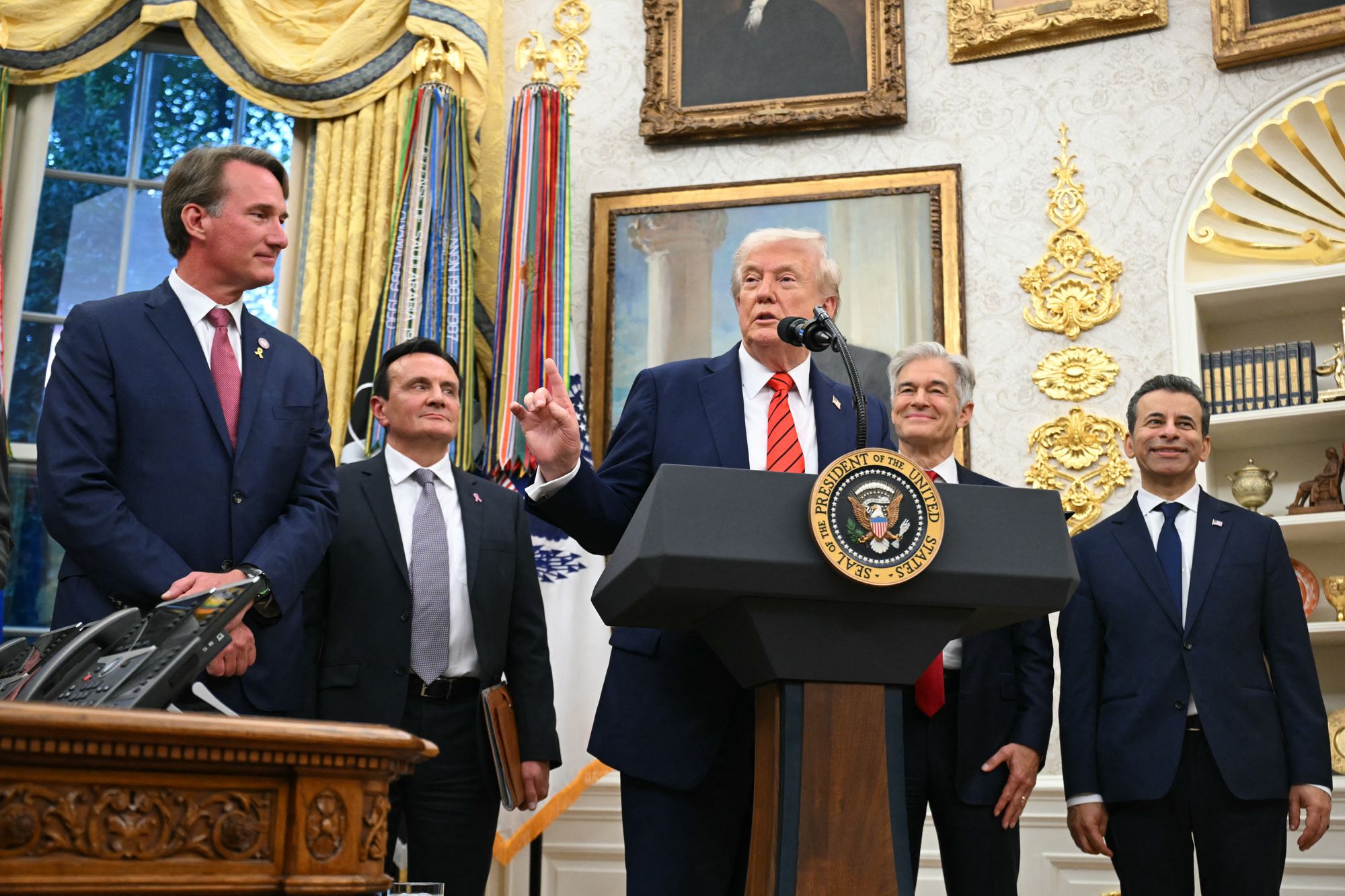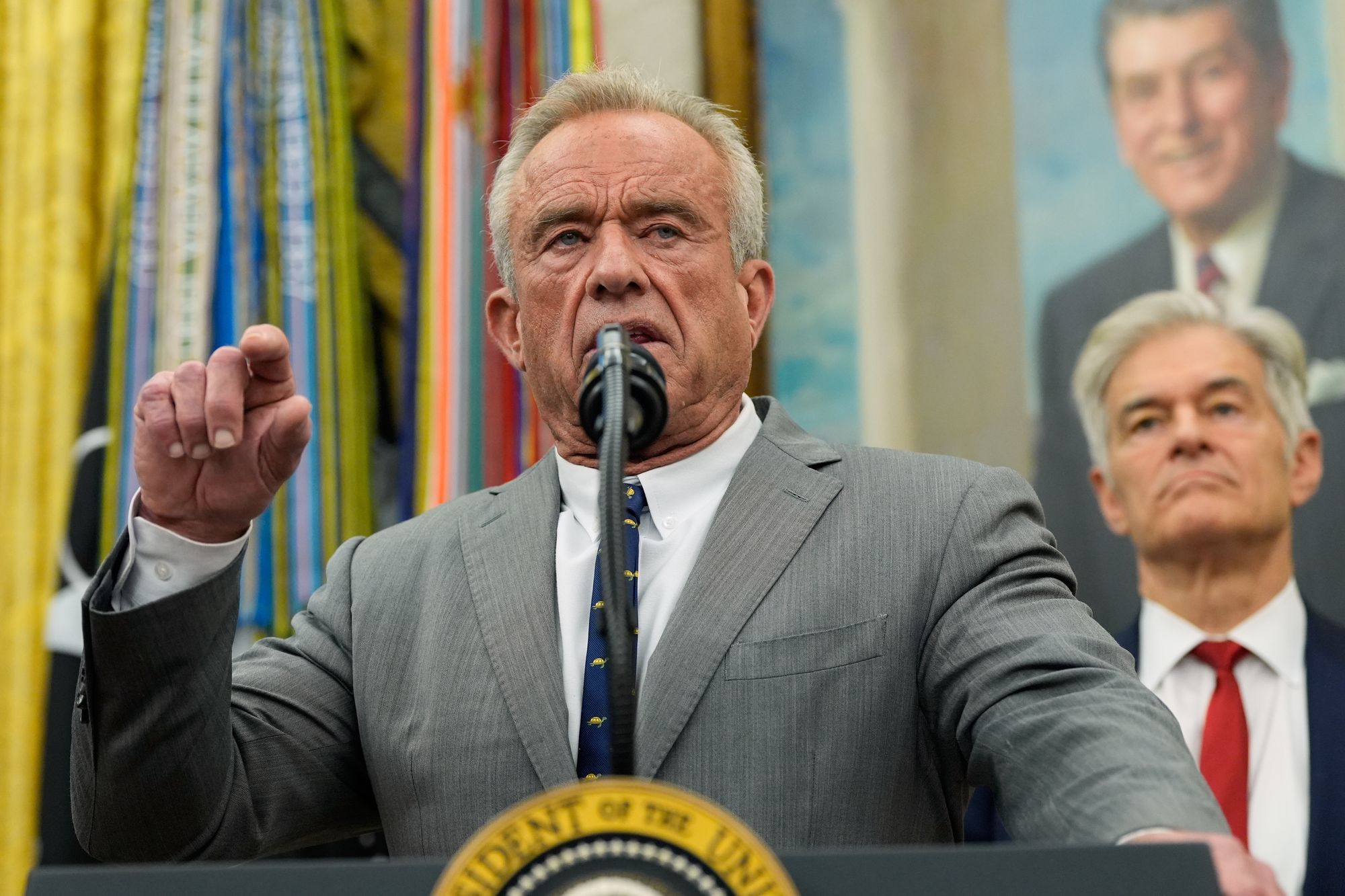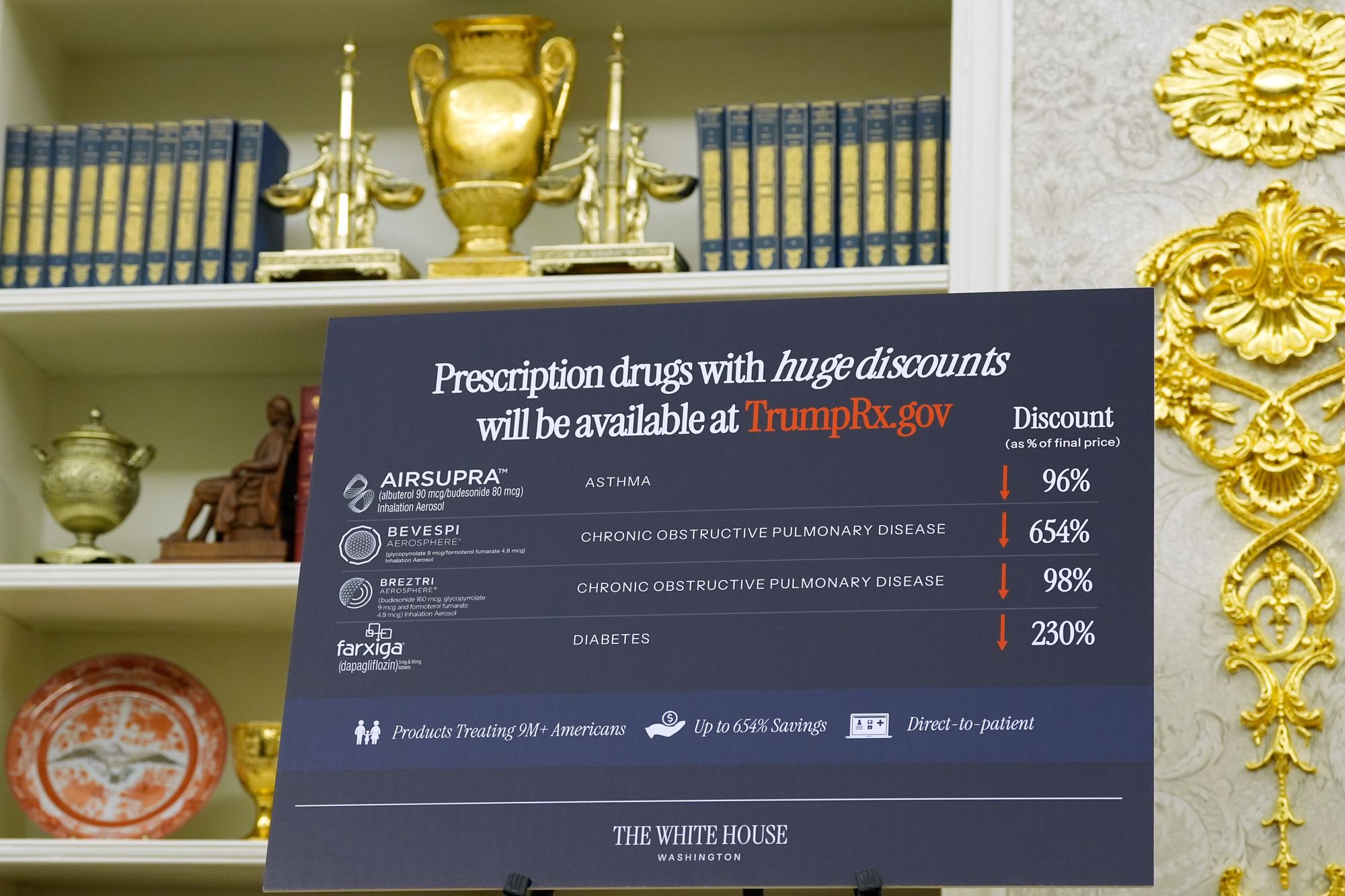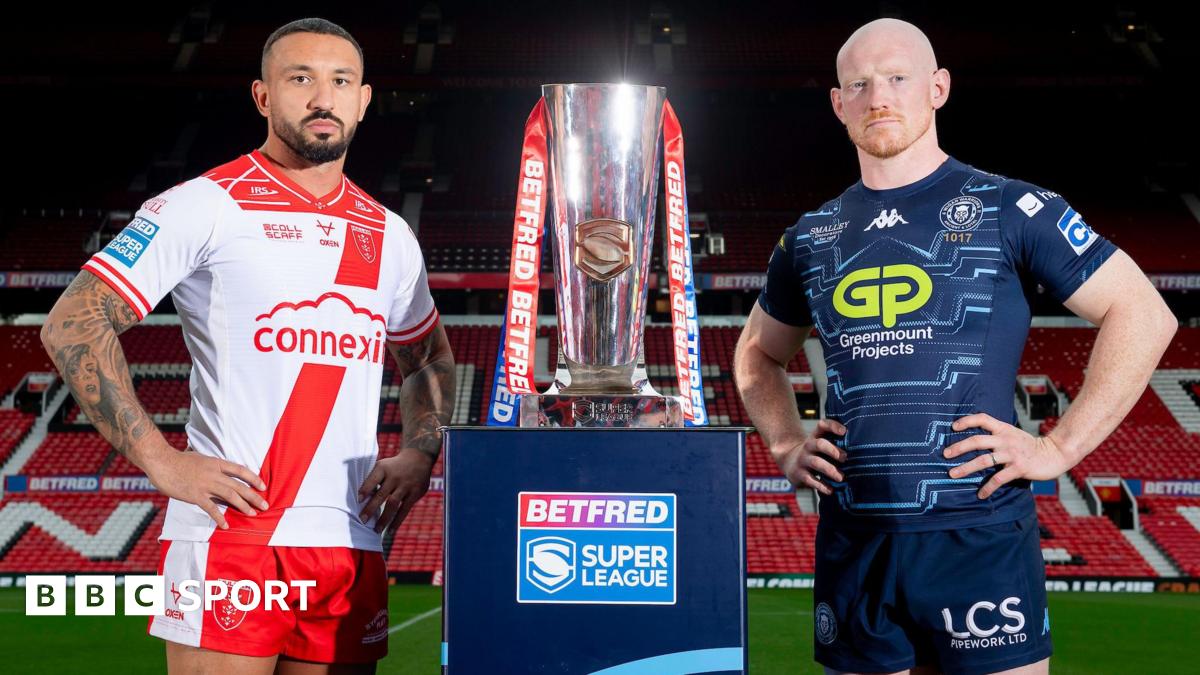Yet another major pharmaceutical manufacturer has agreed to implement President Donald Trump’s “most favored nation” drug pricing plan and to make its products available on a website for direct-to-consumer sales that will be branded with the president’s name.
AstraZeneca, the U.K.-based drug company, is joining its New York-based rival Pfizer in a White House-led initiative to adopt the president’s preferred pricing model. The company’s CEO, Pascal Soriot, announced the move alongside Trump in the Oval Office on Friday.
“Now drug prices are going to be going down. One hundred percent, 400 percent, 600 percent, 1,000 percent in some cases,” Trump said on Friday.
He said that asthma and COPD inhalers and certain diabetes medicines offered by AstraZeneca would be offered at 654 percent below their current price.
Trump’s “most favored nation” pricing model is aimed at making medications more affordable for low-income Americans, including those on Medicaid, by way of a yet-to-launch website that will be called TrumpRx.gov. Dr Mehmet Oz, administrator of the Centers for Medicare and Medicaid Services, said the site is expected to launch early next year.

“AstraZeneca will also list many of their most popular drugs online at Trumprx.gov. Trump RX.I don’t know why they put the name Trump,” the president said. “I did not tell them to do it, but I’m honored to let him do it.”
In addition to lowering its drug prices, Trump said AstraZeneca would invest $50 billion into the U.S. over the next five years for research and development of new pharmaceuticals. He also noted that a $4bn AstraZeneca plant just broke ground in Charlottesville, Virginia, and would employ 3,600 workers.
Trump sung his own praises, saying no president in nearly 30 years had achieved the reduction in drug prices that he claims to have done.
“I had the honor of being the first president in 28 years to lower drug prices during the course of the year, and we actually did, and I was so proud of myself, we called a news conference,” he said. “Presidents have promised for years to lower the cost of health care, but my administration is actually the first to do it and do it substantially, do it at numbers that nobody thought, even I thought, were not possible.”
It should be noted the current and ongoing government shutdown occurred because Democrats are trying to renew expiring Affordable Care Act tax credits, which makes health insurance more affordable for millions of Americans, and were asking for a reversal of the president’s Medicaid cuts and spending cuts at government health agencies.
Department of Health and Human Services Secretary Robert F Kennedy, Jr, said the U.S. is contributing far more into research and develop of new drugs than the rest of the world.

“The whole world was riding on our shoulders and riding on our dime. 70 percent of pharmaceutical revenues comes from this country. We only have 4.2 percent of the world’s population, and we were paying for 80 or 90 percent of the innovation here,” he said.
Oz praised the deal and Trump.
“Just to put a number on this as [Trump] releases us from the bondage of paying three times more for the exact same product made in the same factory, in the same pill box, in the same instruction manual overseas, rather in this country that we pay overseas, it creates an opportunity for us, because Mr. President, you’re turning the Art of the Deal into the art of the heal.”
Soriot praised Trump’s “great leadership” and highlighted the benefits of the new deal for American drug buyers.
“This agreement will deliver improved access to our medicines at a lower cost,” the CEO said. We’ve addressed the four points that you raised in your letter, ensuring Americans do not pay more than patients in other wealthy countries, so it’s a big win for patients and the healthcare system as a whole.”
He said the benefits of the deal will also help to boost the U.S. economy.

“It’s also a big win for the economy and for taxpayers, because it supports rebalancing the cost of innovation across wealthy nations,” he said. “For too long, America has shouldered a disproportionate portion of the world’s R&D.”
The president first pushed the idea of forcing drug companies to match prices offered abroad during his previous term but faced significant resistance from the industry, including pushback in a lawsuit that resulted in a federal court order blocking his administration from carrying the plan out because it had failed to follow proper regulatory procedures.
After returning to the White House, he revived the plan in an executive order he issued in May which directed his administration to take various actions to bring drug prices in the U.S. in line with prices negotiated between pharmaceutical companies and foreign countries that have single-payer health systems such as the British NHS.
In July, he sent letters to leading drug companies demanding that they bring down prices offered to Americans to match the negotiated prices available in foreign countries.

The president has often complained that Americans “pay massively higher prices than other nations pay for the same exact pill, from the same factory” and accused pharmaceutical companies of “effectively subsidizing socialism abroad with skyrocketing prices at home.”
In the White House’s view, Trump’s push to force drug companies to lower prices for Americans by fiat are justified because 75 percent of their profits are earned in the United States, where the same companies benefit from research that is often funded by the federal government.
Pfizer capitulated to the president’s wishes last month, with CEO Albert Bourla appearing in the Oval Office to announce the TrumpRx plan alongside the president, Health and Human Services Secretary Robert F Kennedy Jr, Centers for Medicare and Medicaid Services administration Dr. Mehmet Oz and other administration officials.





.jpg?trim=0,0,0,0&width=1200&height=800&crop=1200:800)